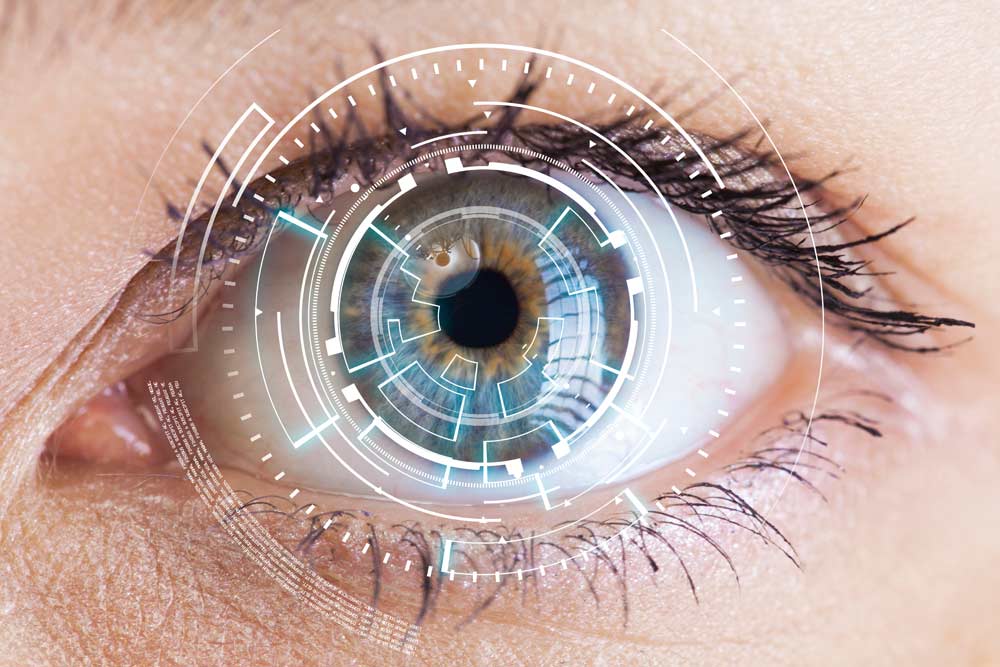West Hartford, CT
Functional Eye Exam

West Hartford, CT
Functional Eye Exam
At SIGHT Multispecialty Center in Farmington, CT, we offer comprehensive eye exams to assess your vision and overall eye health. A functional eye exam is an important part of this process and is designed to evaluate how well your eyes work together to perform various visual tasks.
Our experienced eye doctors take a holistic approach to evaluating your vision and can identify any functional vision problems that may be affecting your daily life. With personalized treatment options like vision therapy and specialized lenses, we’ll work with you to improve your functional vision.
What is functional vision?
Functional vision refers to how well your eyes and visual system work together to perform everyday tasks. This includes tasks such as reading, writing, driving, and participating in sports or other activities that require good visual skills.
Functional vision is not just about seeing clearly, but also involves how well the eyes work together as a team, how well they can focus on objects at different distances, and how well they can track moving objects.
What are the signs of a functional vision problem?
Functional vision problems can manifest in a variety of ways, and the signs can vary depending on the individual and the specific visual skill that is affected. Some common signs of a functional vision problem include:
- Eye strain: Experiencing eye strain, fatigue, or headaches after performing visual tasks such as reading or using a computer.
- Blurred vision: Difficulty seeing objects clearly, especially at a distance or up close.
- Double vision: Seeing two images of the same object instead of one.
- Eye turn: The eyes not pointing in the same direction, which can cause double vision or depth perception problems.
- Poor depth perception: Difficulty judging the distance between objects, which can impact activities such as driving or playing sports.
- Difficulty tracking objects: Struggling to follow moving objects smoothly, which can impact reading or other activities that require visual tracking.
- Light sensitivity: Discomfort or pain when exposed to bright lights or sunlight.
- Poor hand-eye coordination: Difficulty coordinating hand movements with visual information.
- Difficulty with visual processing: Struggling with tasks that require visual memory, visual discrimination, or visual spatial skills.
What are the causes of a functional vision problem?
Functional vision problems can have a range of causes. Here are a few examples of what might lead to functional vision problems:
- Eye muscle imbalances: If the muscles that control your eye movements are imbalanced, it can affect your ability to focus and track objects properly.
- Binocular vision problems: If your eyes are not working together properly, it can cause issues with depth perception and coordination.
- Visual processing issues: If your brain has difficulty processing visual information, it can affect your ability to interpret and understand what you see.
- Traumatic brain injury: A head injury or concussion can damage the parts of the brain that control vision, leading to functional vision problems.
- Neurological conditions: Certain neurological conditions, such as stroke or multiple sclerosis, can affect the visual system and lead to functional vision problems.
What to expect during a functional eye exam
During a functional eye exam, our eye doctor will assess your visual abilities beyond just checking your eyesight. They’ll evaluate how well your eyes work together, your depth perception, eye tracking, and other aspects of your visual system.
The exam may include a series of tests and exercises to measure your visual skills and identify any potential functional vision problems. Our eye doctor may also ask you questions about your daily activities and visual habits to get a better understanding of your visual needs.
In addition to these tests, our optometrist will also evaluate your overall eye health, looking for signs of conditions such as cataracts, glaucoma, and macular degeneration. They will also check your prescription to ensure that your current eyeglasses or contact lenses are providing you with the best possible vision.
Treatments for functional vision problems
Treatment for functional vision problems depends on the specific issues and their underlying causes. Here are a few possible treatment options that our specialists may recommend:
Vision therapy
Vision therapy is a customized program of eye exercises and activities designed to improve specific visual skills and correct functional vision problems. Vision therapy can be a highly effective treatment for many types of functional vision problems, especially those related to eye tracking, eye teaming, and focusing.
Prescription lenses
Corrective lenses, such as glasses or contact lenses, can help correct refractive errors that may be contributing to functional vision problems.
Prism lenses
These specialized lenses can help improve binocular vision problems and reduce eye strain.
Neuro-optometric rehabilitation
Neuro-optometric rehabilitation is a type of therapy that helps to retrain the brain to process visual information more effectively. It can be especially helpful for people who have experienced a traumatic brain injury or have neurological conditions that affect their vision.
Occupational therapy
Occupational therapy can help individuals develop skills and strategies to compensate for functional vision problems and make it easier to perform daily tasks.
Schedule a functional eye exam in Farmington
At SIGHT Multispecialty Center, our goal is to provide our patients with the highest level of eye care possible. Whether you need a routine eye exam or have a specific vision concern, our eye care professionals are here to help. Contact us today to schedule your functional eye exam and take the first step towards maintaining healthy vision for life!
